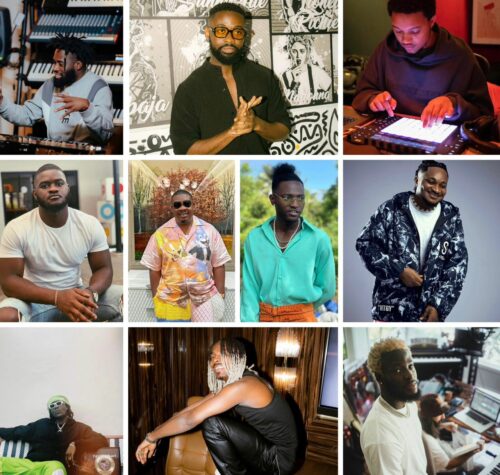
More Than Just a Tag: The New Era of Producer Power in Afrobeats
Every Afrobeats anthem you’ve danced to, streamed, or shouted along to in the club started the same way — not on stage, but in the studio. Long before the lights, the fans, or the charts, there’s a producer hunched over a laptop, cooking up the magic. For years, these beatmakers were the faceless architects of the sound, tucked behind their tags — “Sarz on the Beat,” “Rexxie Pon This One” — while the artists they powered soaked up the glory.
But not anymore.
In 2025, Afrobeats producers are no longer just background names in the credits. They’re selling out shows, dropping their own projects, securing brand deals, and shaping the global sound of a generation. From Sarz’s genre-bending albums to Pheelz’s crossover hits, and Rexxie’s street anthems, producers are stepping out from behind the boards and into the spotlight as full-blown power players.
And it’s not just the veterans. A new wave of young innovators like London and P.Priime are defining what the “modern Afrobeats” vibe feels like — clean, futuristic, and global-ready. Their beats are sleek enough for pop radio in New York, yet rooted enough to still soundtrack the streets of Lagos. Together, they represent the sound of Afrobeats’ future: bold, versatile, and unstoppable.
The business of Afrobeats is evolving — and the producers are no longer just making beats. They’re making moves.
From the Shadows to the Spotlight
Not too long ago, producers in Afrobeats were like ghostwriters — essential, but invisible. You might vibe endlessly to a track, sing every lyric, and never once think about the person who built the backbone of that sound. Back then, the artist’s name carried all the shine while the producer’s credit sat buried in fine print.
But times have changed.

Today, producers are no longer hiding behind laptops in dimly lit studios. They’re stepping onto stages, dropping their own projects, and building cult-like fan bases. Sarz is a perfect example — once only known for lacing hits for Wizkid, he’s now headlining shows in his own right and curating albums that showcase his artistry. Rexxie, who shaped the street sound with Zanku and Amapiano-inspired beats, is now a recognized star with his own brand identity.
It’s a shift powered by fans too. The culture has learned to recognize and celebrate the architects behind the music. Producer tags became chants, collaborations started listing producers as co-stars, and social media gave them a direct link to audiences. In Afrobeats, producers are no longer just “behind the boards” — they’re sharing the spotlight, and sometimes even stealing it.
The Power of the Tag

Before you even hear the first lyric, you already know who’s behind the magic. A whisper, a chant, a playful drop — “Sarz on the Beat,” “Jiggy,” “Rexxie pon this one,” “London!” — those little tags have become cultural signals. They’re not just credits anymore; they’re part of the music itself.
In Afrobeats, the producer tag is branding at its most genius. It’s instant recognition, a stamp of quality, and in many cases, a reason fans press play. Pheelz’s “It’s Pheelz” tag became the gateway into his crossover moment, proving that producers can be as recognizable as the artists they work with. London, the architect behind sleek bangers for Wizkid, Rema, and Ayra Starr, turned his one-word drop into a modern signature — simple, futuristic, and unforgettable. P.Prime, the young wizard behind Fireboy, Olamide, and Asa’s hits, made “P-Prime” feel like a guarantee: if you hear it, you’re about to move.
And then there’s Young Jonn, “the wicked producer,” who rebranded himself with the now-iconic “Jiggy!” drop. That one word has become a vibe in itself — a signal of playful, bouncy energy that has carried him seamlessly from being one of Nigeria’s top producers to a hit-making artist in his own right.
Tags work because they blur the line between the artist and the producer. They turn beatmakers into characters in the song’s story, etching their identity into the culture. Just like a rapper’s adlib (“It’s lit!” or “Another one!”), Afrobeats producers carved out their space in the limelight — one catchy tag at a time.
The Beatmakers Who Became the Sound
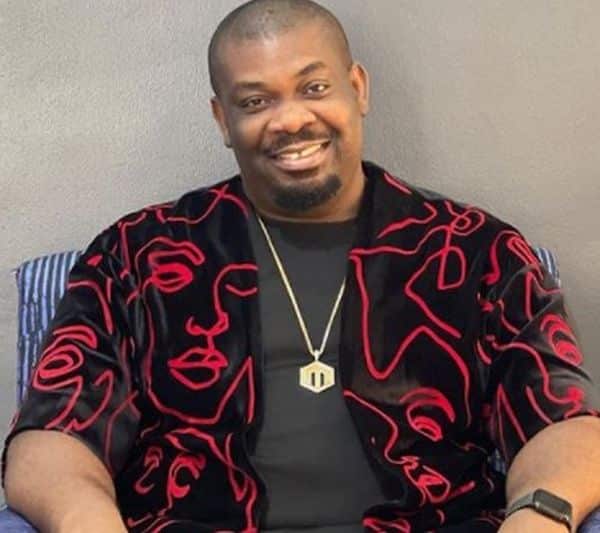
From the early days of Don Jazzy shaping Mo’Hits into a cultural powerhouse, to Sarz pioneering experimental yet club-ready sounds, producers have long been at the heart of Afrobeats’ evolution. Killertunes gave the streets their bounce, while Pheelz broke out of the studio to become a hitmaker in his own right with Finesse.
Now, a fresh wave is redefining the role entirely. London, the quiet genius behind Rema’s global hits, has a knack for futuristic soundscapes that travel as easily from Lagos to Los Angeles. P.Prime, at just 22, has become the go-to for artists seeking a sleek, modern edge that blends street vibes with global polish. And then there’s Young Jonn — with the tag the Wicked Producer who transformed into Jiggy, dropping chart-dominating singles like Xtra Cool and Aquafina. His rise from beatmaker to pop star proves producers are no longer confined to the background; they are the sound, the vibe, and increasingly, the face of Afrobeats.
The Architects of the Sound
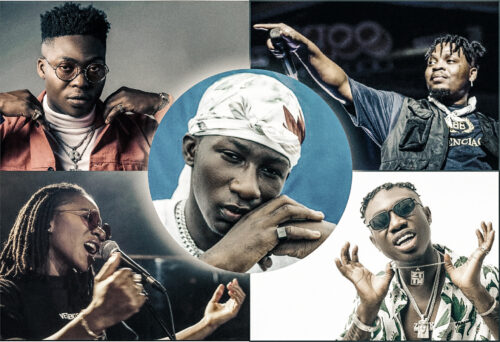
To understand Afrobeats today, you have to look at the men and women behind the boards — the producers shaping the very DNA of the music. Sarz, for example, isn’t just a hitmaker; he’s a visionary. From Wizkid’s Come Closer to Lojay’s Monalisa, Sarz has continuously reinvented himself, showing why he’s often regarded as one of the godfathers of modern Afrobeats production.
Then there’s London, whose sleek and futuristic sound has become a staple for artists like Rema and Ayra Starr, and even veteran Afrobeats artist Wizkid. His work carries an international polish, bridging Afrobeats with pop, R&B, and even EDM influences — making it palatable for global audiences while still deeply rooted in its African core.
P.Prime, the young prodigy, brings a different kind of energy. His beats are vibrant, modern, and always unpredictable. Just listen to his work with Olamide or Fireboy DML, and you’ll hear why he’s one of the most exciting names in the game right now. He’s part of the new guard, unafraid to experiment while still keeping the streets in mind.
And of course, we can’t talk about producers without mentioning Young Jonn, the self-proclaimed Jiggy producer who turned his tag into a cultural stamp. Known for crafting infectious hits like Olamide’s Story for the Gods and Kizz Daniel’s Mama, Young Jonn’s sound is both playful and commanding. Now transitioning into a successful artist himself, he proves that today’s producers are not just content to stay behind the boards — they’re stepping into the spotlight too.
Together, these producers represent the diverse faces of Afrobeats: the veterans, the innovators, and the rising stars, all pushing the sound forward.
The Business of Beats
Behind every Afrobeats anthem is a producer who not only sets the rhythm but also navigates the complex business of music. The revenue streams for producers go far beyond the upfront payment for making a beat.

1. Production Fees
Producers typically charge an initial fee to create a track. This can range from a few hundred dollars for upcoming acts to tens of thousands for top-tier names like Sarz, P.Prime, or London. These fees reflect not only the beat itself but also the producer’s brand, reputation, and unique sound.
2. Royalties
Once the track is released, producers are entitled to royalties — a percentage of the revenue generated from streams, downloads, and physical sales. For global hits, royalties can sometimes exceed the original production fee, making it a crucial part of a producer’s income.
3. Publishing Rights
Since producers contribute significantly to songwriting through melody, chord progressions, and arrangements, they often hold publishing rights. This means they earn whenever the song is performed live, used in films, or placed in commercials. Publishing deals with companies like Sony or Universal can also provide upfront advances.
4. Brand Collaborations
In today’s culture, producers themselves are becoming brands. Young Jonn (“the Wicked Producer, Jiggy!“) has transitioned into a full-blown artist, opening doors for endorsements and campaigns. Sarz has partnered with tech brands, while P.Prime has been tapped for fashion and lifestyle collaborations that merge music with culture.
Ultimately, the modern Afrobeats producer is not just a behind-the-scenes creator but also a stakeholder in the business of global sound. By leveraging fees, royalties, publishing, and brand power, they turn beats into both cultural impact and financial success.
The Young Guns: Shaping Afrobeats’ Modern Sound
A new wave of producers is redefining Afrobeats for the global stage. These “young guns” are blending traditional African rhythms with futuristic soundscapes, giving the genre its modern edge and international appeal.
-
London – Known for his clean, minimalist yet hard-hitting beats, London has worked with artists like Wizkid, Rema, and Ayra Starr. His knack for layering soft melodies over pulsating rhythms makes his productions instantly global.
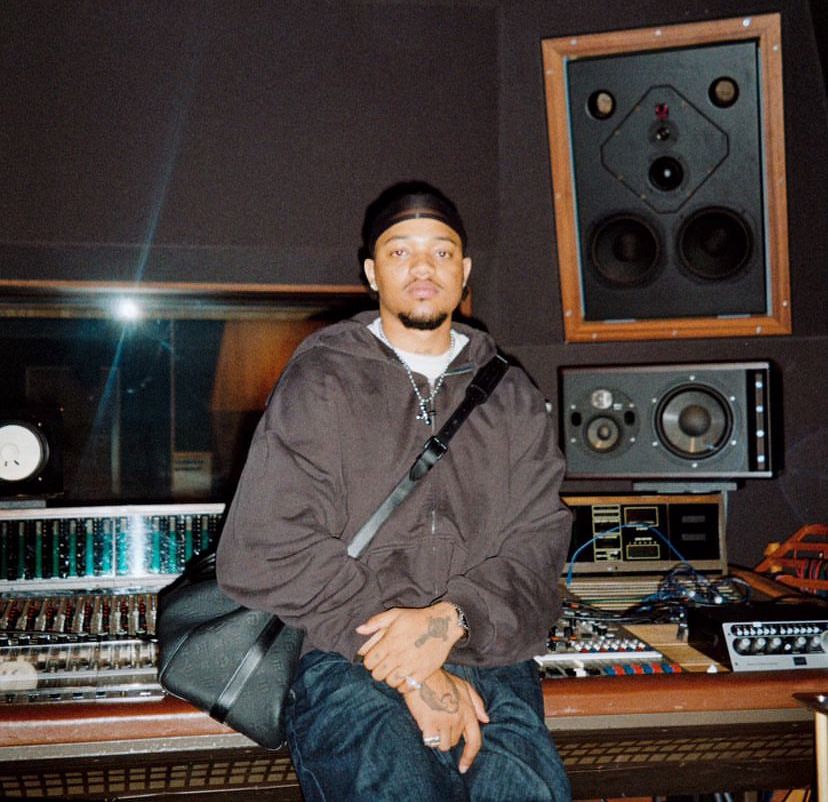
-
P.Prime – A prodigy who rose to fame at a young age, P.Prime is behind some of Afrobeats’ biggest crossover hits. His beats combine log drums, synth-heavy textures, and bouncy percussion, creating sounds that feel both street and international.
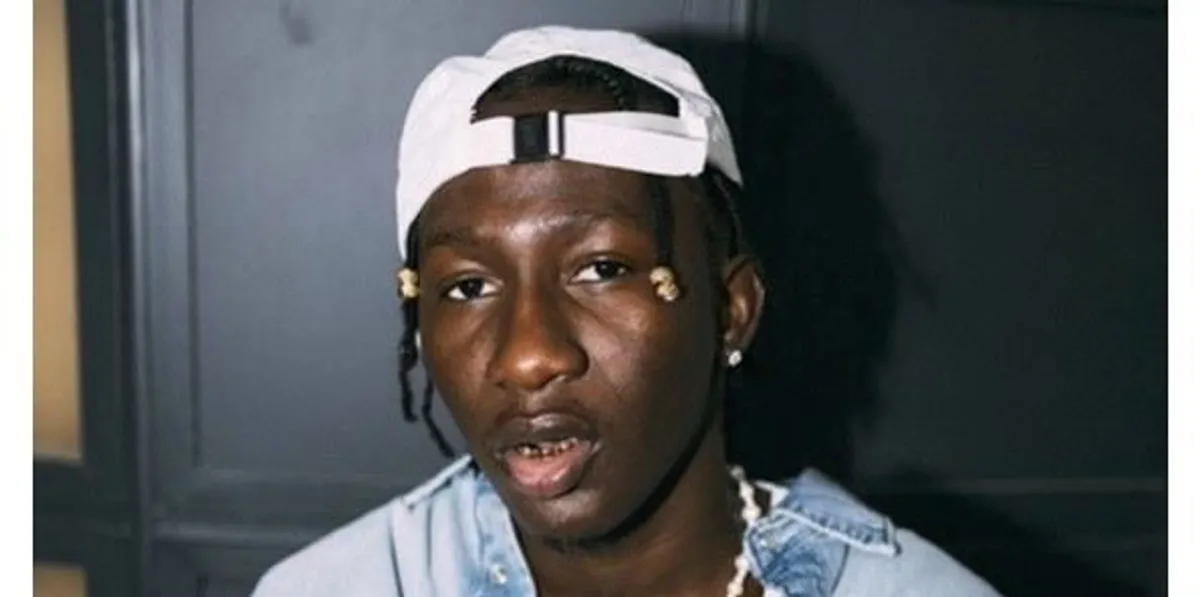
-
Tempoe – Popularly tagged with “Mad!” on tracks, Tempoe is one of the architects of Afrobeats’ melodic expansion. He thrives on creating dreamy, vibe-heavy instrumentals that allow artists’ voices to shine while still carrying club energy.

-
Semzi – Semzi’s productions often have a raw, experimental edge. He isn’t afraid to push boundaries with unconventional drum patterns and electronic fusions, helping shape the sound of artists looking to stand out.

-
Andre Vibez – With roots in both Afro rhythms and Western pop, Andre Vibez is one of the most versatile young producers. His work on projects like Rema’s Soundgasm and other hits reflects his ability to balance soul, groove, and futurism.
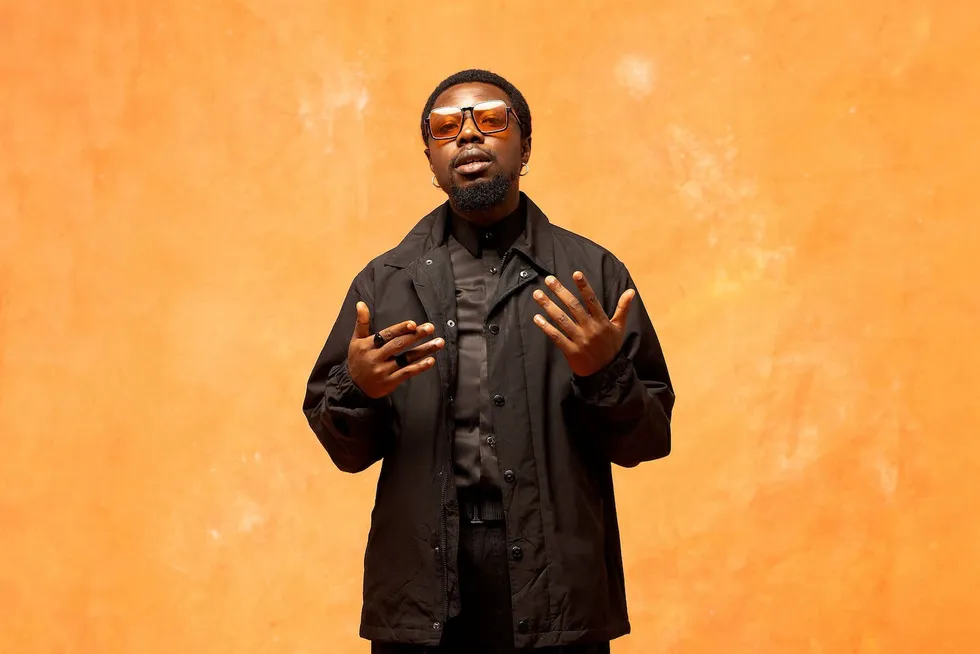
Together, these producers are building a new identity for Afrobeats—one that is global, genre-bending, and innovative, without losing the African heartbeat at its core. They represent the next frontier, ensuring Afrobeats is not just a wave, but a movement with staying power.
Global Influence, Local Roots

One of the most fascinating things about Afrobeats today is how its sound is both hyper-local and global at the same time. At the center of this balance are the producers — those sonic architects who make sure the heartbeat of Lagos, Accra, or Port Harcourt still thumps even when the music travels to London, New York, or Los Angeles.
Take London, for example. He’s Wizkid’s somewhat go-to producer, crafting timeless bops like Gyrate that have become global touchstones. While the sound is smooth enough for international playlists, the drum patterns and subtle log drums keep it rooted in the streets of Lagos.
Then there’s P.Prime, the growing hitmaker whose beats have landed global placements with international stars, from working on collaborations that cross into the U.S. hip-hop market to weaving Afrobeats seamlessly with R&B and pop. Yet, when you listen closely, his beats still echo the raw percussive drive of Nigerian street-hop — an anchor that ensures no matter how far the music goes, it never loses its identity.
Tempoe, with his sleek productions (Love Nwantiti, Soweto), shows how Afrobeats can be stripped down and minimalist, yet still connect worldwide. His sonic choices keep the Afro swing intact while being digestible for global pop listeners. Similarly, Andre Vibez has taken his father’s highlife legacy and modernized it, showing how tradition and futurism can co-exist in one beat.
And then there’s Telz, popularly called “Fun Killer”, who embodies groove. His productions for Burna Boy and other stars carry an energy rooted in Lagos nightlife. With heavy log drums, Afro-fusion layering, and playful rhythms, Telz proves you can keep the sound authentically African while making it appealing worldwide.
Yet, this global reach wouldn’t be possible without the foundation laid by earlier architects like Sarz and Young Jonn. Sarz has long bridged Nigerian sounds with electronic and global rhythms, influencing a generation of younger producers. Young Jonn, “the wicked producer,” defined an era with Olamide and Lil Kesh, creating street anthems that still echo in today’s music.
Together, this new wave and its predecessors ensure Afrobeats doesn’t lose its roots even as it spreads worldwide. The heartbeat of Lagos — its street slang, Fuji inflections, Yoruba percussion, and raw energy — remains present in every export, whether it’s on a Wizkid ballad charting in London, a Burna Boy anthem winning Grammys, or a viral TikTok smash in the U.S.
Afrobeats’ producers are not just beatmakers; they are cultural translators — blending local authenticity with global adaptability. This balance is what keeps the genre fresh, futuristic, and deeply rooted at the same time.
Future of the Boardroom

For years, Afrobeats producers were the unsung architects, working behind the scenes to craft the rhythms that carried artists into stardom. But today, they are no longer confined to the studio — they’re stepping into boardrooms, running labels, mentoring younger talents, and positioning themselves as moguls shaping the industry’s future.
Producers like Sarz exemplify this shift. With his Sarz Academy, he isn’t just producing hits — he’s cultivating the next generation of sound architects, ensuring Afrobeats remains innovative and competitive globally. Young Jonn, once celebrated as The Wicked Producer, has successfully transitioned into a full-fledged artist, proving that producers can rewrite their destinies and command front-stage influence.
Meanwhile, Don Jazzy has long been the blueprint. As the head of Mavin Records, he has transformed from a beatmaker into one of Africa’s most influential music executives, overseeing a roster of superstars while building an entertainment empire that extends beyond music into branding, tech, and investment.
Younger producers are following suit. P.Prime, already making waves internationally, is positioning himself as not just a hitmaker but a cultural broker who understands both Lagos streets and global pop charts. London and Telz are also leveraging their reputations to move beyond placements into business ownership and mentorship, shaping a legacy that extends past their discographies.
The future of Afrobeats will be as much about strategy and leadership as it is about rhythm and melody. Producers are stepping into the role of visionaries — negotiating publishing rights, building labels, curating talent pipelines, and creating business ecosystems that solidify Afrobeats as a global powerhouse.
From the studio to the boardroom, they are proving that the beat doesn’t just drive the music — it drives the business.
Read More: Afrobeats in 2025: Why West African Music is Taking Over the World
The post Behind the Boards: Producers, The New Power Players in Afrobeats appeared first on tooXclusive.
Disclaimer:The opinions presented in this post are those of the mentioned author. The content has been sourced from TooXclusive, with due attribution to the company.
If you wish for us to take down this content, kindly get in touch as soon as possible. This material is shared strictly for promotional purposes only.



